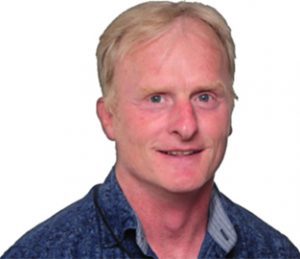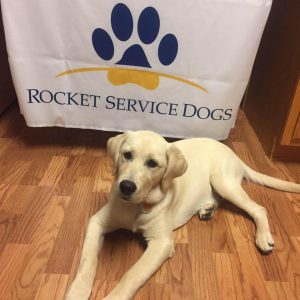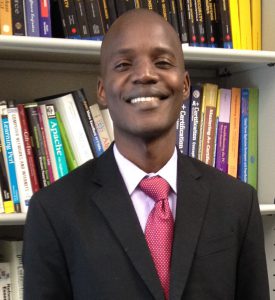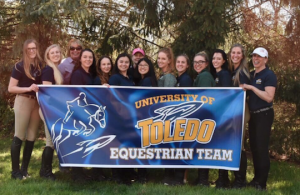Archive for September, 2017
German physicist to speak at UT on measuring freshwater toxicity using algae, water fleas
Tuesday, September 19th, 2017A physicist from Germany who invented a water quality instrument used by University of Toledo scientists for Lake Erie algal bloom research is giving a lecture at UT titled “Measuring toxicity in freshwater using algae and water fleas.”
The free, public event is 7 p.m. Thursday, Sept. 21 at the UT Lake Erie Center, 6200 Bayshore Rd. in Oregon.
 Christian Moldaenke, researcher and founder of the German company bbe Moldaenke, has been in Toledo since mid-July using a new device in western Lake Erie to determine how well the instrument can measure the condition of harmful algal blooms and how blooms react to water treatment chemicals.
Christian Moldaenke, researcher and founder of the German company bbe Moldaenke, has been in Toledo since mid-July using a new device in western Lake Erie to determine how well the instrument can measure the condition of harmful algal blooms and how blooms react to water treatment chemicals.
“Christian Moldaenke’s company produces some of the best water quality instruments in the world,” said Dr. Tom Bridgeman, UT algae researcher and professor of ecology. “Its fluoroprobe, which is capable of quantifying algae in the water and distinguishing between different types of algae, is the Cadillac of algal probes.”
Moldaenke is working with Bridgeman to advance research into how to protect the water supply.
“My presentation will be about measuring and understanding the water and its creatures,” Moldaenke said. “I will demonstrate how water fleas react to toxins and how we can use their movement to determine blue-green algae in order to achieve better treatment for cyanotoxins.”
Bridgeman said the new devices Moldaenke is testing this algal bloom season in Lake Erie may be capable of easily detecting when algal cells are starting to rupture, which would be a powerful tool for water utility managers to minimize toxin release.
UT to recognize National Service Dog Month with talks, training demonstration Sept. 21
Tuesday, September 19th, 2017To celebrate National Service Dog Month, The University of Toledo will host an event from 2 to 4 p.m. Thursday, Sept. 21 on the third floor of Carlson Library.
This free, public session will feature a talk by Dr. Janet Hoy-Gerlach, associate professor in the UT Social Work Program. Hoy-Gerlach will discuss her new book, “Human-Animal Interactions: A Social Work Guide.” The book was co-authored with Scott Wehman, a UT alumnus who received a master’s degree in social work in 2012.
“The focus of the new book is two-fold,” Hoy-Gerlach said. “To raise awareness of the importance and benefits of the human-animal bond for human well-being and to increase the abilities of social workers and other helping professionals to respond to people in need who have animals.”
 Rocket Service Dogs, a new student organization at UT, is eager to educate students on the service dog training process. The organization also will be at the event, along with several puppies that are in training.
Rocket Service Dogs, a new student organization at UT, is eager to educate students on the service dog training process. The organization also will be at the event, along with several puppies that are in training.
“Knowledge about service dogs is important for the community because there is value in bringing awareness to the capabilities of the dogs, as well as the protections that they legally receive,” said Summer Martin, vice president of Rocket Service Dogs. “It is important for people to understand the huge impact that an assistance dog can have on a person’s life, along with the infinite number of services the dogs can provide.”
Rocket Service Dogs partners with Assistance Dogs for Achieving Independence, a program of the Ability Center of Greater Toledo, to provide participants with information and resources for fostering and training the dogs in the program.
Jenny Barlos, client service manager for Assistance Dogs for Achieving Independence, also will be in attendance at the National Service Dog Month event to present and provide a training demonstration with a dog.
For more information on Rocket Service Dogs and how to foster a dog in training, contact rocketservicedogs@gmail.com.
NSF awards UT $1.8 million grant to engage high school students with cybersecurity
Monday, September 18th, 2017Can self-driving cars be hacked?
The University of Toledo will teach more than 2,000 local high school students and teachers how to use mathematics and computational thinking to solve cybersecurity problems in smart vehicles as part of a new $1.8 million grant from the National Science Foundation.
The three-year federal grant for the INITIATE program, which is officially titled Understanding How Integrated Computational Thinking, Engineering Design, and Mathematics Can Help Students Solve Scientific and Technical Problems in Career Technical Education, funds the partnership between UT, NSF and Toledo Public Schools.
At the end of each year, students compete in a “modern pinewood derby” where each team races a smart vehicle through an obstacle course without another team hacking the vehicle to crash or disable it.

Dr. Jared Oluoch
“This grant is a great step towards preparing a workforce in the United States that focuses on cybersecurity and smart vehicle technology,” said Dr. Jared Oluoch, UT assistant professor of computer science and engineering technology and principal investigator of the project. “The concept of smart vehicles is appealing to high school students because it is a new, intriguing idea. Our goal is to improve algebra and geometry standards among the students and prepare them to pursue STEM disciplines in college.”
The program engages local high school students in how to design and program secure technologies and helps science teachers in grades nine through 12 integrate computational thinking into their curriculum. The project also investigates whether focusing on a specific problem is an effective way to make mathematics more engaging and relevant to students.
The program includes a two-week summer institute for 12 teachers and ongoing academic year meetings designed to assist those teachers in implementing the project into their classrooms with 2,217 students.
“The University’s forward-thinking proposal to the National Science Foundation will put local students in the center of fast-moving smart car technology research and training,” said Congresswoman Marcy Kaptur. “NSF funding will help instill job skills and nurture interest in the sciences and mathematics by immersing students in real world problems such as the next wave of cyber security challenges. The University of Toledo, local schools and the federal government have forged a partnership that will engage young learners in addressing the needs of our legacy, job creating automotive industry and begin preparing them for careers in science, tech, engineering and math-related fields.”
Oluoch oversaw the development of the INITIATE program along with Dr. Charlene Czerniak, professor emeritus of science education and research professor in the UT College of Engineering, and Dr. Ahmad Javaid, assistant professor of computer science in the UT College of Engineering.
UT to host International Human Trafficking and Social Justice Conference Sept. 21-22
Monday, September 18th, 2017A University of Toledo professor and advocate fighting against human trafficking will unveil the first comprehensive, evidence-based guide to preventing the sex trafficking of children at the 14th Annual International Human Trafficking and Social Justice Conference.
Survivors, social workers, law enforcement officers, educators, nurses and researchers from across the globe will come together for the two-day conference at The University of Toledo to bring the sex and labor trafficking trades out of the shadows and help end the abuse through education and advocacy.
The conference, which is hosted by UT’s Human Trafficking and Social Justice Institute and the Lucas County Human Trafficking Coalition, is Thursday and Friday, Sept. 21 and 22 in the Student Union on Main Campus.
Dr. Celia Williamson’s pioneering research, which was supported by a grant from the Ohio Department of Higher Education for the Ohio Children’s Trust Fund, provides a multi-tiered system targeting at-risk youth and the adults who interact with them. Her presentation is 9 a.m. Friday, Sept. 22 in the Student Union Auditorium.
“This research project and dozens of others that will be presented at the conference will help communities all around the world end this form of modern slavery and save victims from suffering,” said Williamson, UT professor of social work and director of the Human Trafficking and Social Justice Institute.
Since 2004 this annual conference has welcomed presenters from more than three dozen states and 15 countries to lay the groundwork for future collaborative research, advocacy and program development.
Additional speakers include:
- Lauren Martin, director of research at the University of Minnesota Urban Research Outreach Engagement Center, will share how she is mapping new information about who sex buyers are in Minnesota, where they live and purchase sex, and how they enter the marketplace of this criminal underworld, at 9 a.m. Thursday, Sept. 21 in the Student Union Ingman Room.
- Jesse Bach, founder of the Cleveland-based nonprofit The Imagine Foundation, will explain how issues such as race, poverty and prison-industry profit turned child gang members into “forgotten” child soldiers in the United States, at 10:15 a.m. Thursday, Sept. 21 in the Student Union Auditorium.
- Vernon Murray, associate professor of marketing at Marist College, and Dr. Sherry Dingman, associate professor of psychology at Marist College, will present about moral authority and their view that if the United States wishes to encourage anti-trafficking attitudes, it should pass Senate Bill H.R. 40 regarding reparations for the descendants of African slaves, at 11:30 a.m. Friday, Sept. 22 in Student Union Room 2591.
- Amy Smith and Sarah Brenes, program manager and director, respectively, of the anti-human trafficking services and unaccompanied minor services at the Institute of Minnesota, will present opportunities, challenges and issues associated with a large-group agricultural labor trafficking case, such as balancing law enforcement priorities with victim immigration and social service needs, at 10:15 a.m. Thursday, Sept. 21 in Student Union Room 2584.
- Willie McKether, UT vice president of diversity and inclusion, and Jennifer Pizio, associate director of the UT Office of Diversity and Inclusion, will focus on what makes human trafficking possible in society and culture, at 11:30 a.m. Thursday, Sept. 21 in the Student Union Ingman Room.
For additional information and a full schedule of presentations, visit traffickingconference.com.
UT to host naturalization ceremony Sept. 18
Friday, September 15th, 2017The University of Toledo will celebrate Constitution Day with the swearing in of 80 people as U.S. citizens at a naturalization ceremony 11 a.m. Monday, Sept. 18 in the UT Law Center McQuade Law Auditorium.
U.S. District Judge Jeffrey J. Helmick of the Northern District of Ohio will preside over the ceremony.
Established in 2004, Constitution Day recognizes the formation and signing of the U.S. Constitution on Sept. 17, 1787. All educational institutions that receive federal funds hold events to recognize the day.
Immigrants, who are 18 and older, are eligible to become a U.S. citizen and qualify for naturalization after being a permanent resident for a minimum of five years. Those married to a U.S. citizen and meet all the other eligibility requirements can apply after being a permanent resident for a minimum of three years.
“Students, faculty and staff should plan attend this very moving ceremony celebrating citizenship,” said Diane Miller, UT associate vice president for government relations. “At naturalization ceremonies, the new citizens will be giving up citizenship of their homeland and choosing to become American citizens. It’s a great celebration and a reminder of the freedoms we enjoy as citizens of the United States.”
Grisoranyel Barrios, a fourth-year political science and social work student who moved to Toledo from Venezuela in 2002, will open the court, and Kyle Zapadka, a sophomore majoring in finance and accounting who is speaker of the senate for Student Government, will close the court.
Dr. Andrew Hsu, UT provost and executive vice president for academic affairs, and Benjamin Barros, dean of the UT College of Law, will give welcoming remarks at the ceremony.
Agnieszka McPeak, UT associate professor of law, will be the featured speaker for the event. Zachary R. Boyer a UT junior studying political science and philosophy, also will speak.
Student Government President Jimmy Russell will lead the Pledge of Allegiance, and Melaney Goosby will recite the New Colossus.
Under the direction of Dr. Brad Pierson, UT assistant professor and director of choral activities in the Music Department, the UT Concert Chorale will perform “The Star-Spangled Banner.”
The free, public event is sponsored by the UT Office of Government Relations and the UT Center for International Studies and Programs.
UT equestrian team to bring horses to campus to raise funds for hurricane relief
Friday, September 15th, 2017The University of Toledo is inviting the community to giddy up for a good cause.
The UT equestrian team is hosting Horses for Humanity to help those affected by hurricanes in Florida and Texas from 3 to 7:30 p.m. Friday, Sept. 15 in the grassy area south of Memorial Field House on Main Campus.
 Four horses, some of which serve as therapy horses, will be on campus for people to ride for a $3 to $5 donation, which will go to the American Red Cross, and/or two canned goods for the UT Food Bank.
Four horses, some of which serve as therapy horses, will be on campus for people to ride for a $3 to $5 donation, which will go to the American Red Cross, and/or two canned goods for the UT Food Bank.
Cash collected will benefit hurricane relief efforts.
“We want to help as much as we can. We feel that bringing horses out will bring joy to people here, and the money will benefit the hurricane relief effort,” said Andrea Woo, founder and co-president of the team.
Woo encouraged all who are interested to stop by regardless of skill level.
“Members of the team will be on hand to assist in riding, and you can always pet or feed the horses if you don’t feel comfortable riding them,” she said.
ABC’S John Quinones to speak at UT Sept. 21
Thursday, September 14th, 2017As part of The University of Toledo’s celebration of National Hispanic Heritage Month, popular TV host John Quinones will give the first of this year’s Jesup Scott Honors College Distinguished Lecture series on Thursday, Sept. 21.
Quinones, ABC News veteran, anchor for 20/20 and Primetime, and host of the popular TV series “What Would You Do?,” will speak at 6 p.m. in Doermann Theatre, located in University Hall on the UT Main Campus. Limited tickets remain.

John Quinones
Titled “A 20/20 Vision for America: Building Bridges, Not Walls,” Quinones’ presentation will use his odds-defying journey to celebrate the life-changing power of a college education, champion the Latino American Dream and provide insights into human nature and ethical behavior.
“We’re very pleased to have John Quinones speak at UT,” said Dr. Heidi Appel, dean of the honors college. His personal experiences, professional advice, and message of reconciliation will inspire our students to pave their own, unique paths to success.”
Born in San Antonio, Texas, in 1952 to a Spanish-speaking family, Quinones did not learn English until he began school at age 6. When he was 13, his father was laid off from a janitorial job and so his family joined a caravan of migrant farm workers. They traveled to Traverse City, Mich., to harvest cherries, and then later picked tomatoes near Toledo. It was here that his dad challenged Quinones to choose education over a life of manual labor.
Thanks to the federal Upward Bound program, Quinones prepared to enter college and eventually earned his master’s degree from Columbia University’s School of Journalism. Among numerous accolades, Quinones has received a Gabriel Award for a report that followed a young man to Colombia to reunite with his birth mother after two decades, a CINE Award for a report done in Israel about suicide bombers, and an ALMA Award from the National Council of La Raza.
For additional information or to request tickets for the free, public event, contact honors@utoledo.edu or 419.530.6030.
Winningest Rocket football coach to sign books Sept. 16
Wednesday, September 13th, 2017Former University of Toledo head football coach Gary Pinkel will return to campus to sign his new book, “The 100-Yard Journey: A Life in Coaching and Battling for the Win,” Saturday, Sept. 16.
He will be at the Barnes & Noble University Bookstore at the Gateway from 2 to 4 p.m.
Pinkel also will be among the honorees of Toledo’s 100-year football anniversary celebration at halftime Saturday night when Toledo takes on Tulsa at 7 p.m. in the Glass Bowl.

He co-authored the memoir published by Triumph Books with Dave Matter, who covers the University of Missouri for the St. Louis Post-Dispatch.
Few college football coaches earn the distinction of becoming their programs’ winningest, but Pinkel has done it twice.
From 1991 to 2000, he coached the Toledo Rockets, leading the team to 73 wins, the most in school history. Pinkel also has the highest winning percentage (.659) among UT coaches who were on the sidelines at least three seasons. In addition, he ranks fifth in the Mid-American Conference in wins, fourth in wins in MAC contests (53), and eighth in winning percentage.
He led Toledo to a MAC Championship in 1995, as the Rockets went 11-0-1, won the Las Vegas Bowl, and ended the season ranked No. 22 in the final coaches’ poll. He also led UT to MAC West Division titles in 1997 and 1998. In his final season at Toledo in 2000, Pinkel’s Rockets went 10-1, including a 24-6 win at Penn State. His teams ranked in the top 25 in three different seasons — 1995, 1997 and 2000. Pinkel was MAC Coach of the Year in 1995 and 1997.
He left Toledo after the 2000 season to accept the head coaching position at Missouri, leading the Tigers into the top 10 in 2007 and 2008, as well as to Southeastern Conference East titles in 2013 and 2014. Missouri received a No. 1 Associated Press ranking at the end of the 2007 season, and Pinkel took home SEC Coach of the Year honors in 2014. In 15 seasons, he and the Tigers won 118 games — the most by a Mizzou football coach — and reached 10 bowl games.
Pinkel’s su ccess on the field was accompanied by personal and professional challenges, including a diagnosis of non-Hodgkins lymphoma, which prompted him to step away from coaching in 2015.
ccess on the field was accompanied by personal and professional challenges, including a diagnosis of non-Hodgkins lymphoma, which prompted him to step away from coaching in 2015.
In the 272-pages of “The 100-Yard Journey,” the football leader reflects on meeting and overcoming the unexpected.
The book follows the 1975 Kent State University graduate’s coaching career, including serving as an assistant at the University of Washington from 1979 to 1990. And it begins with his days on the gridiron. From 1971 to 1973, Pinkel played tight end for the Golden Flashes; his senior season, he earned All-MAC and honorable mention All-America honors.
In 2009, the Akron native was inducted into UT’s Varsity ‘T’ Hall of Fame, and six years later, into the MAC Hall of Fame.
Pinkel now is a special consultant to the University of Missouri and its Athletic Department.
Copies of “The 100-Yard Journey” will be for sale at the event for $26.95.
Canaday Center preserves Toledo’s first city charter
Wednesday, September 13th, 2017A small envelope tucked away in a safe in the attic of Toledo’s Safety Building downtown was labeled with a handwritten note reading, “Charter of the City of Toledo Year 1837.”
The fragile pieces of paper inside, which had been carefully folded and stored by city employees at some point in history, document the original charter and by-laws of the city of Toledo printed in 1837, the year the city was founded.

The “Charter of the City of Toledo Year 1837” is now preserved in the Canaday Center for Special Collections.
“It is unusual for such historically significant documents as the city’s first charter to be squirreled away like that in the attic of a city building,” said Barbara Floyd, director of Ward M. Canaday Center for Special Collections at The University of Toledo. “But the fact that they still exist 180 years later indicates that storing them in the attic ensured their survival.”
The charter document that includes numerous amendments — some written directly on the charter, another written out in longhand and attached to the back of the document — is now permanently preserved in the Canaday Center in UT’s Carlson Library, where it will be housed in a temperature and humidity controlled environment and available for public viewing.
UT will present these historic documents to the public at an event 10 a.m. Tuesday, Sept. 19 in the Canaday Center with UT President Sharon L. Gaber, Toledo Mayor Paula Hicks-Hudson and elected city officials.
In addition to the original charter that features the signature of Toledo’s first mayor John Berdan, the safe contained a poll book for the year 1836 with a handwritten list of the 226 individuals living in the township of Port Lawrence who were eligible to vote in the city’s first election. It was dated Oct. 11, 1836 and contains the names of many of the most important people in the history of the city, including Benjamin Stickney and Stickney’s son, Two Stickney.
“These would have been the individuals who voted in the election for Toledo’s first mayor,” Floyd said.
The collection of historic city records also includes several other iterations of the charter from the 19th century, including folders of handwritten amendments from 1845 and 1851, and a complete charter from 1846 that bears the certifying signature of Ohio Secretary of State Samuel Galloway from back when city charters had to be approved by the state legislature.
The city records also document some details of the history of The University of Toledo. One handwritten piece dated 1874 concerns an effort by the trustees of the Toledo University of Arts and Trades, which had been founded by Jesup W. Scott two years before, to give the assets of the University to the city of Toledo after Scott’s death. That did not happen, and the University closed four years later. In 1884, what remained of the University’s assets was turned over to Toledo, and the school reopened as a municipal school that year, which it would remain until 1967.
The collection also contains a ballot and certified election results for the bond issue approved by voters in November 1928 that raised $2.8 million to build UT’s Bancroft Street campus.
The newest records found earlier this year in the Safety Building were added to existing local historical documents the Canaday Center acquired two years ago, including the first minute book of Toledo City Council from 1837, records of Toledo’s city manager dating from 1947, and a large collection of annual reports from city departments, dating from the 1890s.
“I have been an archivist for 35 years, and have helped to preserve some great collections,” said Floyd, who will retire from her position as director of the Canaday Center and university archivist at the end of September. “But these materials that document the city of Toledo are some of the most important materials I have ever come across. Ensuring they are preserved and accessible to the public is a highlight of my career.”
Some of the city documents will be on public display in the Canaday Center’s next exhibit, “Preserving Yesterday for Tomorrow: The Best of the Ward M. Canaday Center,” that is slated to open in early November.
UT to debut new veterans lounge named for alumnus
Wednesday, September 13th, 2017The University of Toledo will commemorate the opening of its new veterans lounge with a ribbon-cutting ceremony 3 p.m. Friday, Sept. 15 on the second floor of Carlson Library.
The LTC Thomas J. Orlowski ’65 Veterans Lounge offers student-veterans a place to relax, study and enjoy the camaraderie they experienced while serving their country.
The University’s veterans lounge was previously located in Rocket Hall. The new lounge named in honor of Orlowski, a UT alumnus, was part of the recent $6 million renovation project to the library made possible by state biennium capital funds.
“Our student-veterans were interested in a more centrally located space and in this academic setting they also will have better access to library resources for research and homework with longer hours to take advantage of the lounge,” said Navy Reserve Lt. Haraz Ghanbari, UT director of military and veteran affairs.
A $20,000 donation from the Coalition to Salute America’s Heroes supported the creation of the new lounge, which is larger with a separate social area and private study section.
The coalition’s gift was made in recognition of Orlowski, as a UT alumnus and Army veteran who is the immediate past chairman of the organization’s board.
Orlowski graduated from UT in 1965 with a degree in English literature, and he also was a middle linebacker for the football team. He joined the Army later that year, and his 20-year military career included assignments in the 1st Infantry Division in Vietnam, 5th Infantry Division (Mechanized), HQ U.S. Army Europe, HQ U.S. Continental Army Command and the Office of the Adjutant General of the Army. For his service in Vietnam, he was awarded the Purple Heart, Silver Star, Bronze Star for Valor with two Oak Leaf Clusters and Air Medal, according to the coalition.
“The lounge will definitely help veteran students academically, but a secondary benefit that people may not realize is the camaraderie of others who have been where you’ve been and done what you’ve done,” Orlowski said.
The ceremony is followed by an open house and refreshments from 3:30 to 5 p.m.

